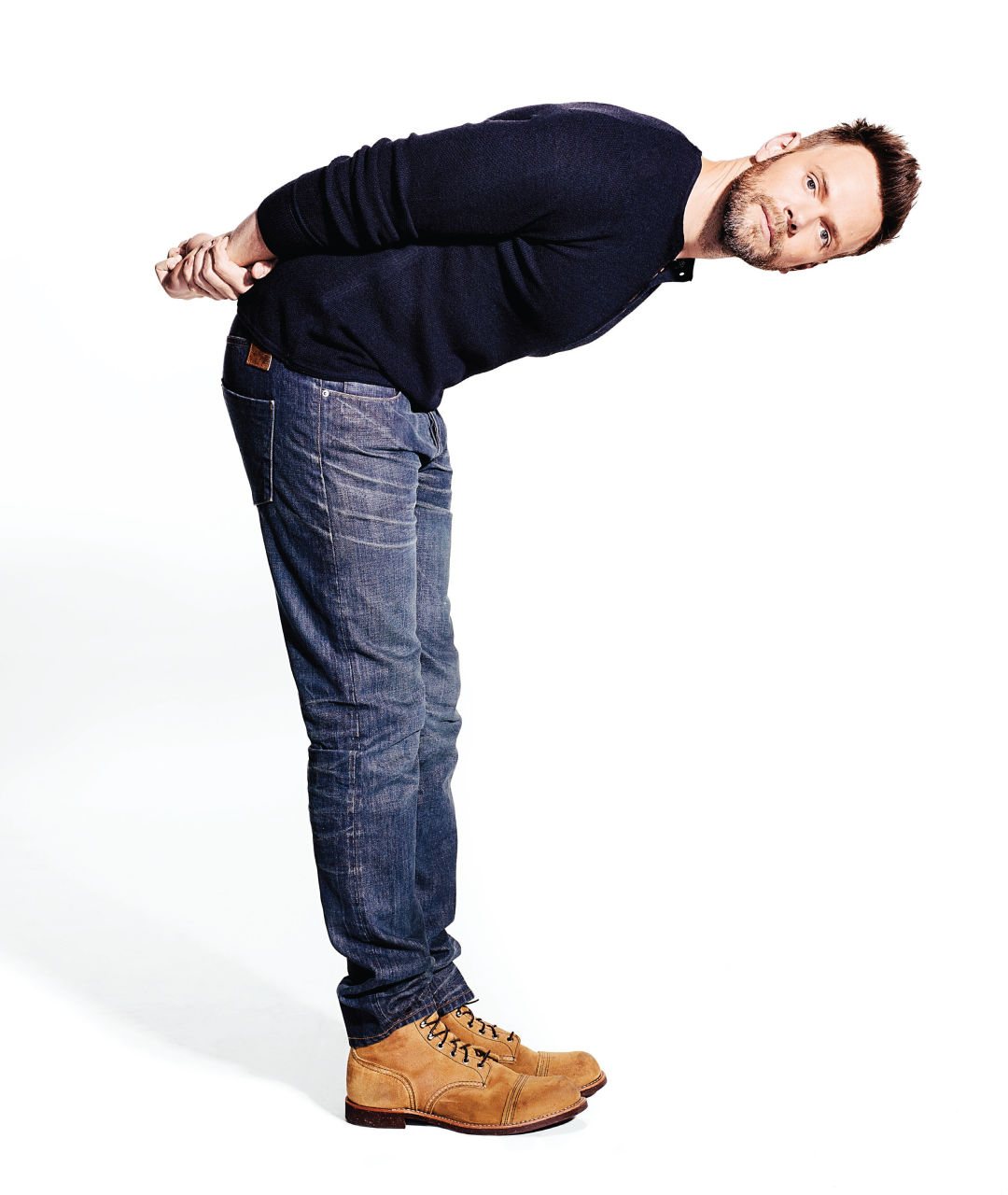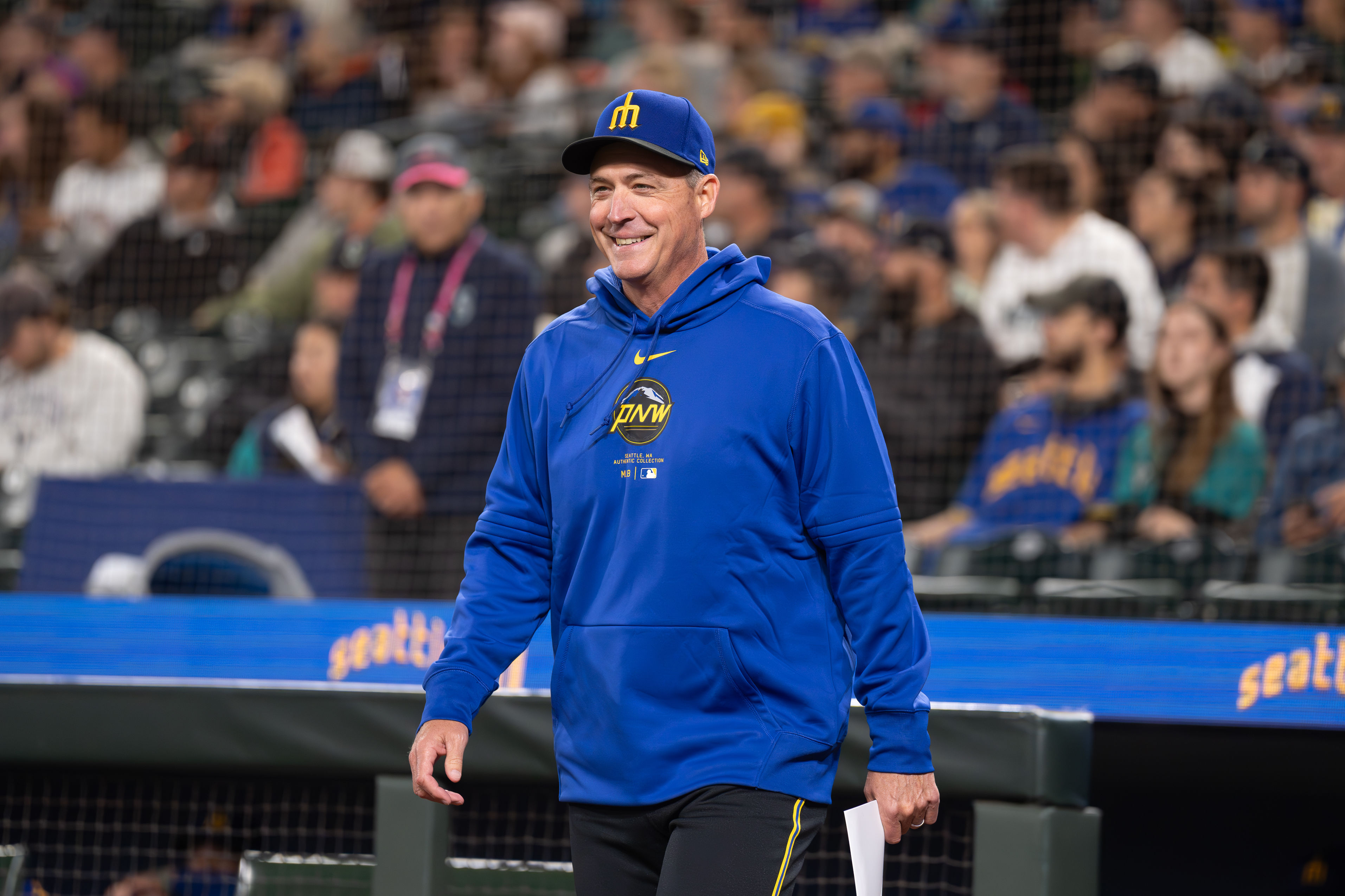“I’m a Workaholic and Obsessive, Which I’m Sure Will Shorten My Life”

Joel McHale photographed for Seattle Met at CBS Studio Center in Los Angeles on September 13, 2016.
Hair by Jade Perry, Make-Up by Pamela Lljubo, Styled by Jose Camilo
Image: José Mandojana
There are a few clues that Joel McHale’s new book is far from a traditional memoir. First, it’s called Thanks for the Money: How to Use My Life Story to Become the Best Joel McHale You Can Be. Then there’s the second half, which doles out absurdist (and dubiously helpful) nuggets of self-help. But it’s the second chapter that seals the deal: The 45-year-old Mercer Island native and star of The Soup, Community, and the new CBS sitcom The Great Indoors dedicates a full page to diagramming the sexual positions his parents might have used to conceive him and his two brothers. Yeah, it’s like that. He’s like that. But then maybe that’s why he’s a successful actor-comedian-pitchman-author and we’re not. —Matthew Halverson
I’d been offered book deals a number of times, and they always said, “memoir.” But I do not want this to be looked at as a regular memoir. It’s not a this-is-my-life-up-until-now type of book.
Now, all of the memoir stuff is based on things that actually happened. Obviously my parents didn’t have sex in three different ways to conceive me and my brothers. But they definitely conceived us. I have no idea what the positions were, and I don’t like to think about it for too long.
If you come out of the book thinking, I was laughing, but I don’t really know how I feel about that, that’s the best response I can hear.
When you make these books, you get on a phone with a lawyer for, I don’t know, 10 minutes or four hours. They want all of these permissions and crap, and they’re like, “Do you have permission from your parents to depict them in these sexual positions?” I was like, “Yeah, don’t worry about it. They’re going to be fine.” “Have you asked them about it?” “Don’t worry about it.” Well, my wife let it slip to my parents, and they were like, “That sounds fun.”
My parents are saints. I’ve contacted the Pope. The canonization has begun. People always think your childhood must have been screwed up if you go into comedy. I don’t know. Will Ferrell isn’t really screwed up. Neither is Adam Sandler. They had good families, and they’re super successful.
I don’t have angst. But thoughtful, critical thinking about how our society operates does require, obviously, massive criticism. All of my friends and my wife and my family would say I have a very distinct point of view and I’m very opinionated about things, to a point of mass annoyance.
I learned early on, when David Letterman would make fun of GE—who at the time owned NBC—that you always go after the most powerful. They can take it. That’s why with The Soup we would go after the most popular shows. You look mean and stupid if you make fun of the weak.
Speaking of, we do live in the greatest country in the world, because when I hosted the White House Correspondents’ Dinner I could tell jokes about the president to his face and not be thrown into a prison camp.
It’s very rare when a show becomes a massive hit. Sure, we would have loved for Community to be the most watched show of all time. But we did six years and a hundred episodes of network television, which is very rare. We filled the largest hall at Comic-Con. Twice. A show like The Big Bang Theory or Seinfeld only happens once every quarter century.
After playing the same character for six years, you have a better handle on what you’re doing. But that doesn’t mean you don’t still have to be funny.
I never had a plan. All I had to operate from was the point of view that I had and what I felt was funny. It was like, “This is what I find funny, and hopefully other people find funny too.” Especially in the early days of The Soup, the writers and I were literally just trying to make each other laugh.
If you’re an actor and you do a job so well that you’re only remembered for that role and your hardest job after that is to try to do other work, that’s a pretty damn good problem to have—compared to the thousands of other actors who don’t get a shot or haven’t got a shot or are in a job they hate.
I’m a workaholic and obsessive. Which tends to make it easier to find work. And I’m sure it will shorten my life.
If you get a job and think you’re going to be on easy street, you’re going to be off that street real soon. Lawyers practice law, doctors practice medicine, race car drivers race cars, and actors act. You have to do the thing that you claim that you are if you are that thing.
There was a time I was doing The Soup and Community and getting ready for a standup show at Carnegie Hall and shooting a movie all at once, when I figured out that I hadn’t taken a day off in six months. And I had a two-year-old and a five-year-old. My wife was like, “Wow, you’re not around so much.” And I’m like, “I guess I’m not.”
It’s not like I’m trying to make a big pile of money so someday I can say, “I’ve reached 55 and now I’m going to stop.” I don’t know if I’ll ever retire. I can’t imagine a world where I retire. I would like to see the world more, though. Maybe I’ll just do the sequel to Point Break.
Joel McHale: 'Thanks for the Money' Reading and Book Signing
Oct 29 at 7, University Temple United Methodist Church, $31




